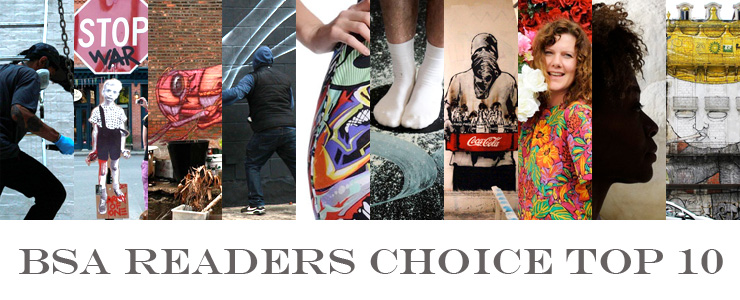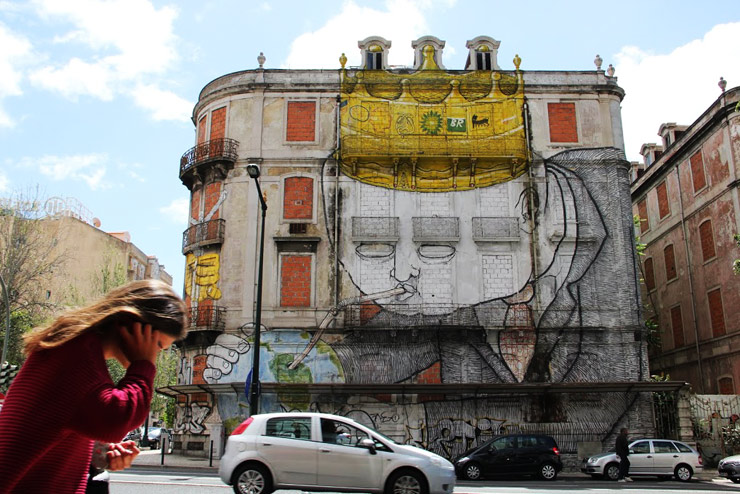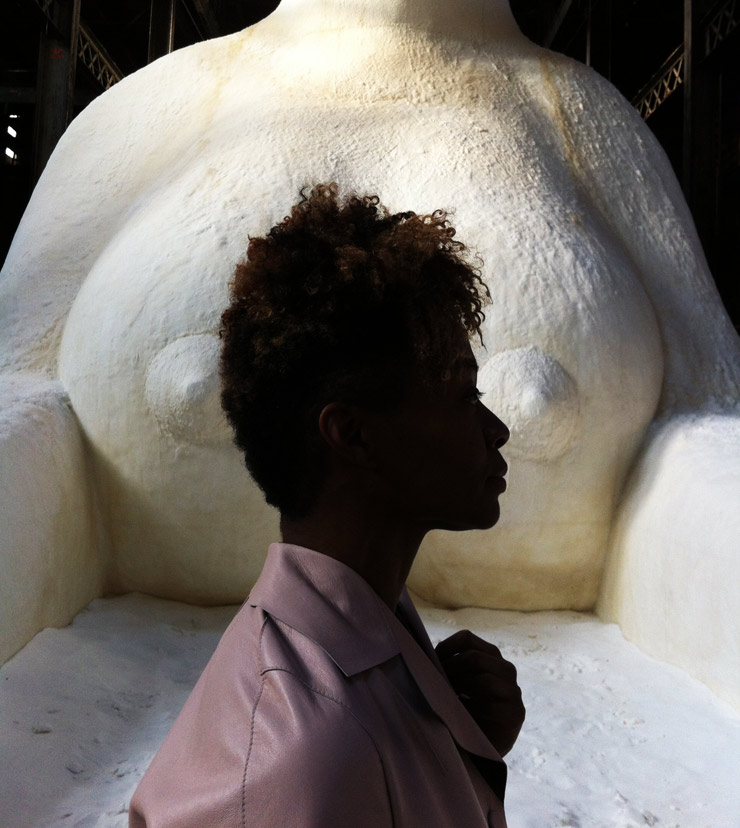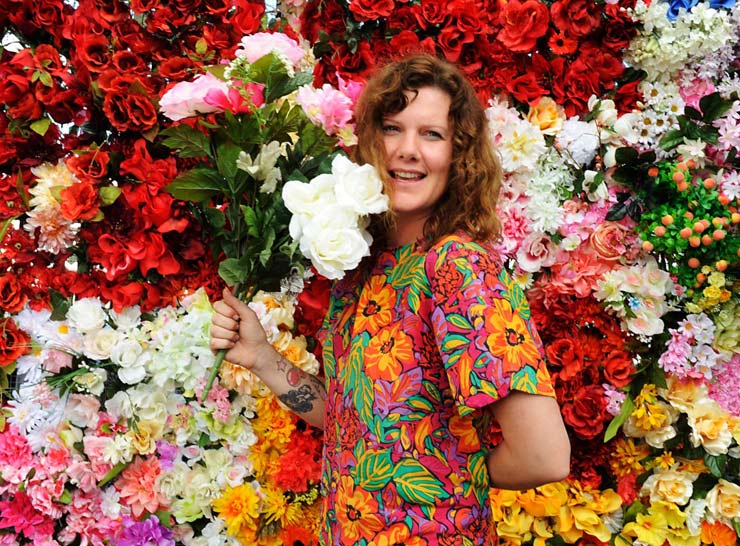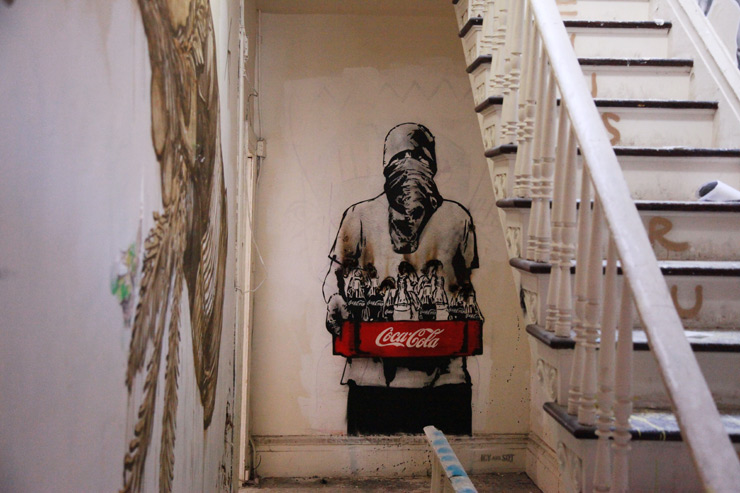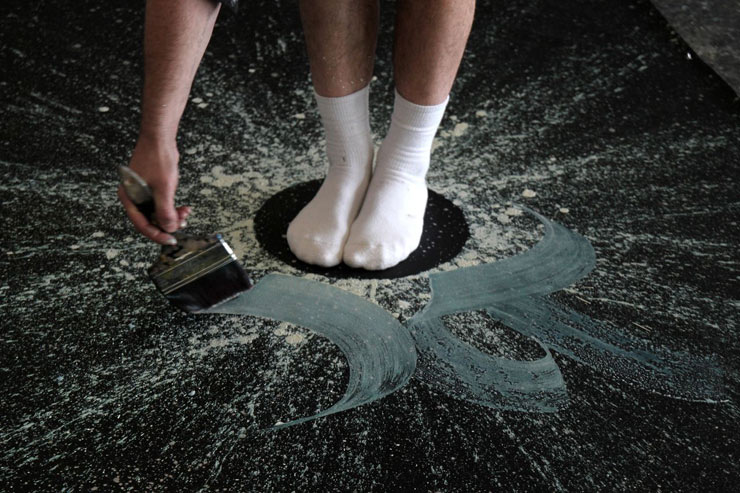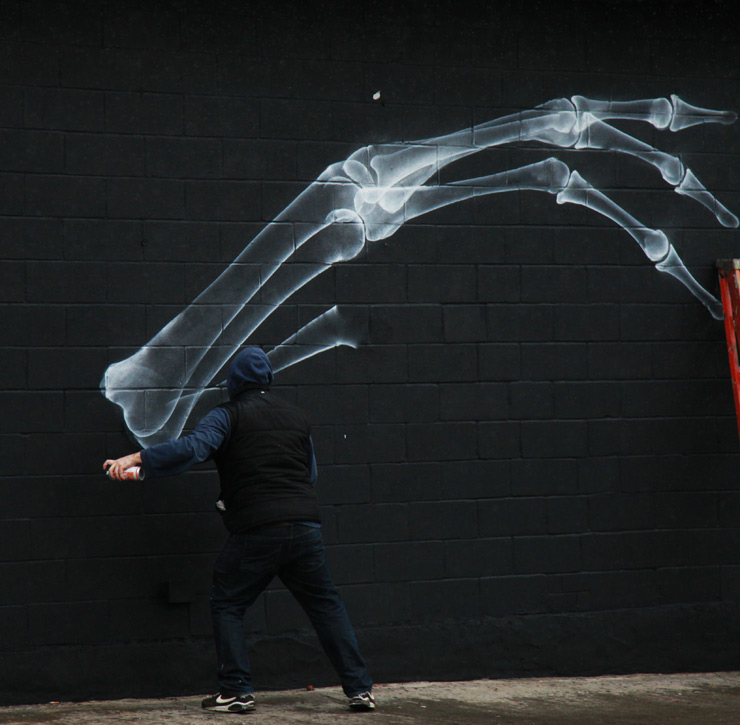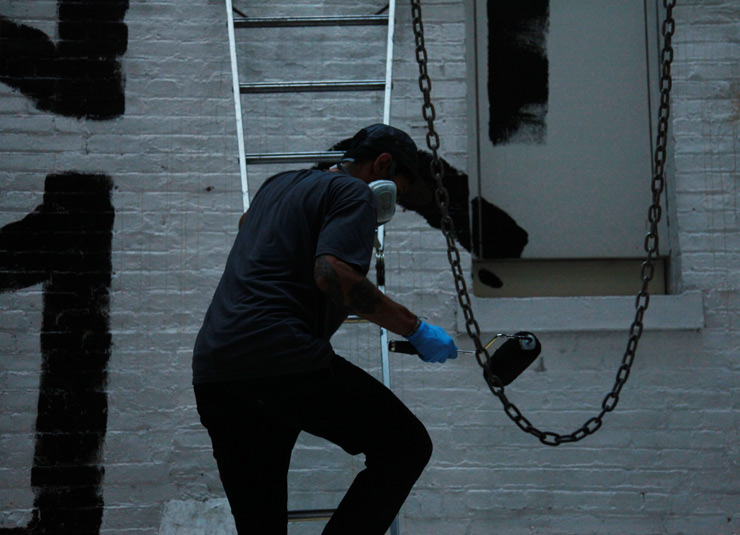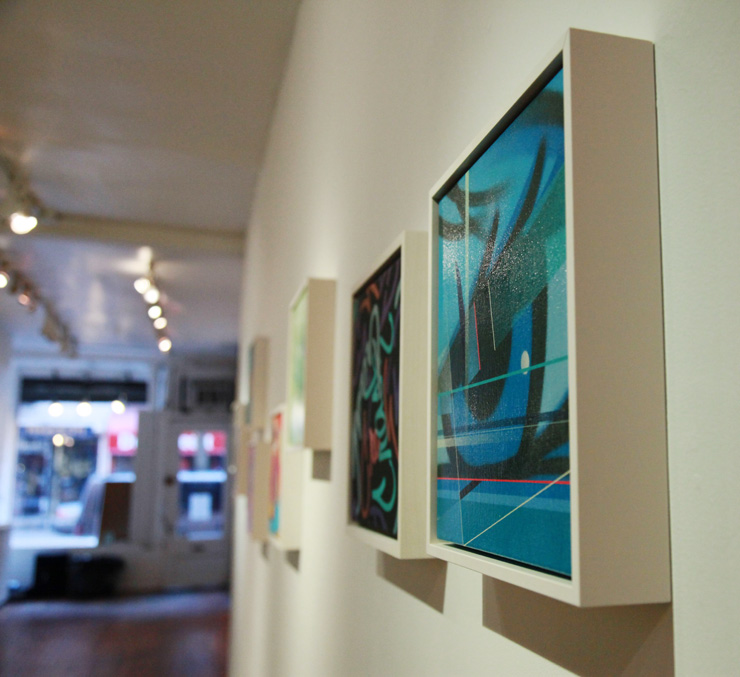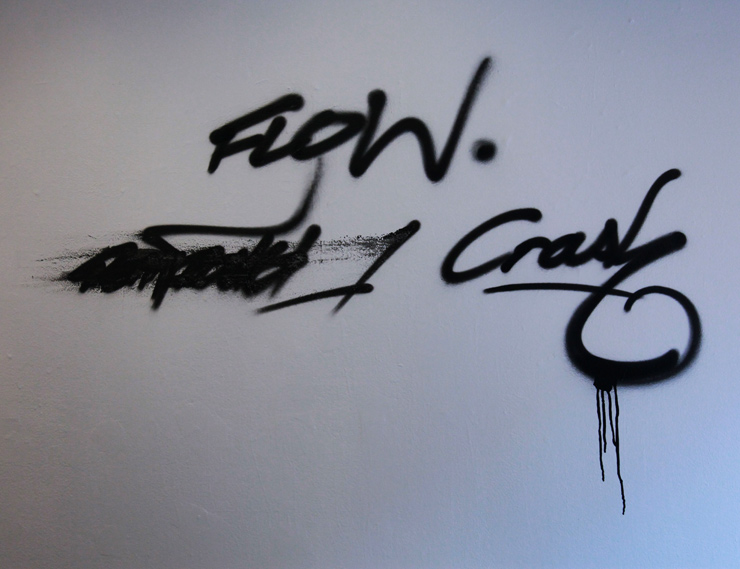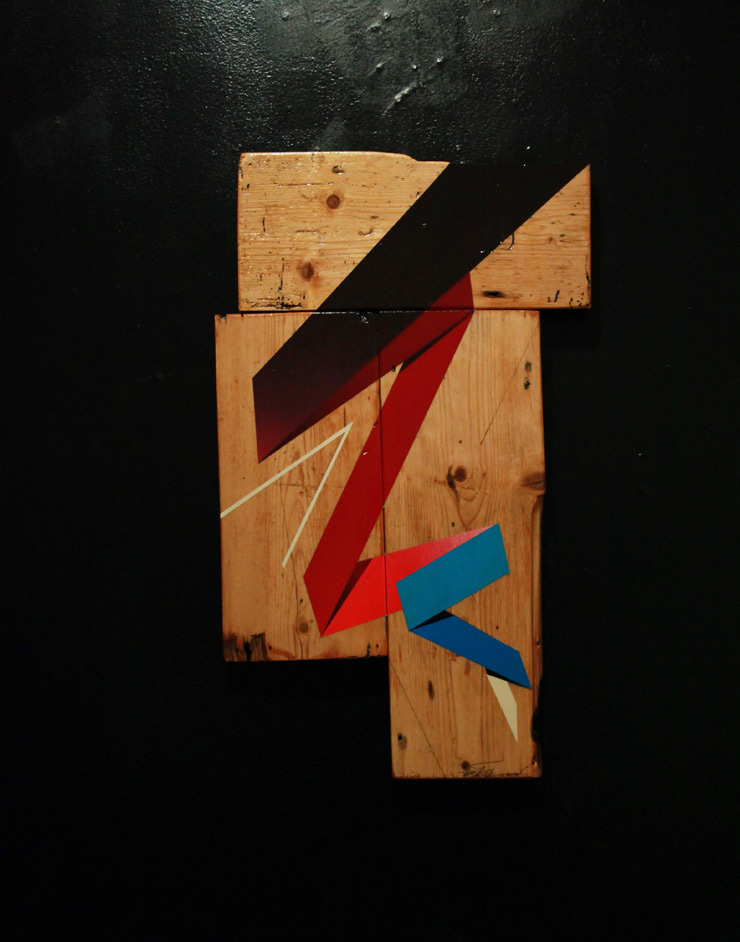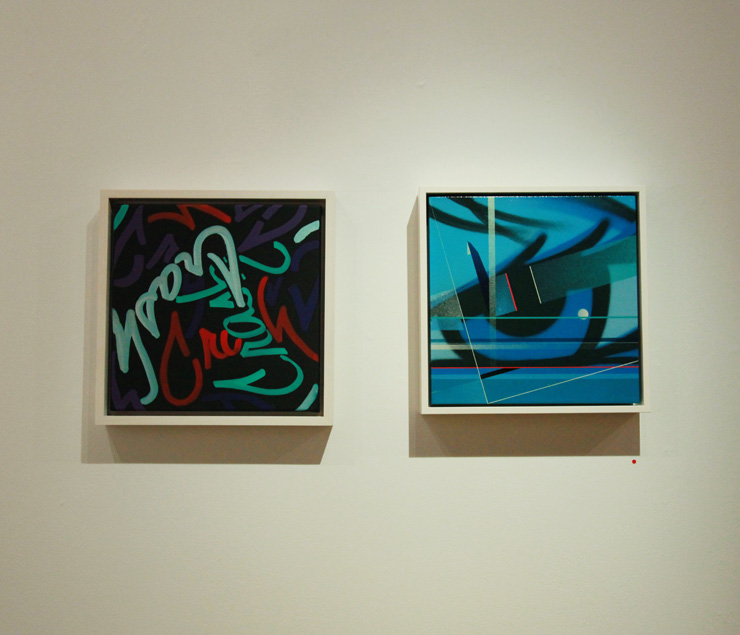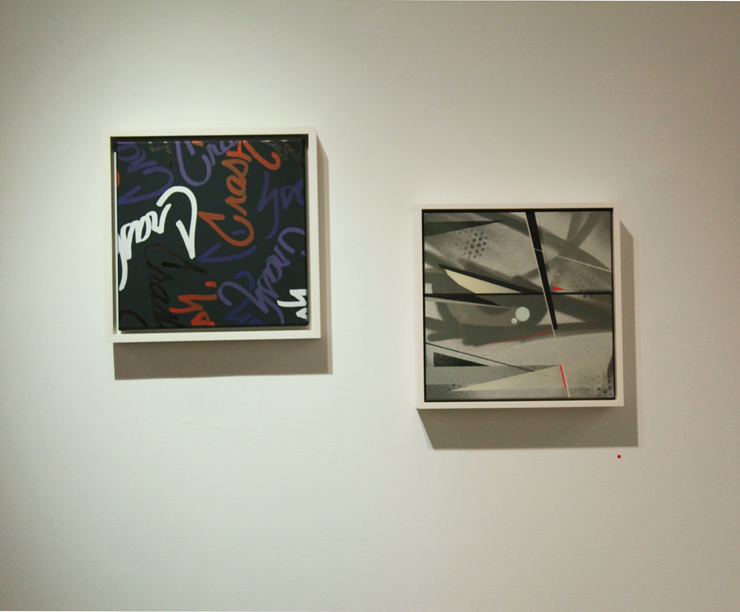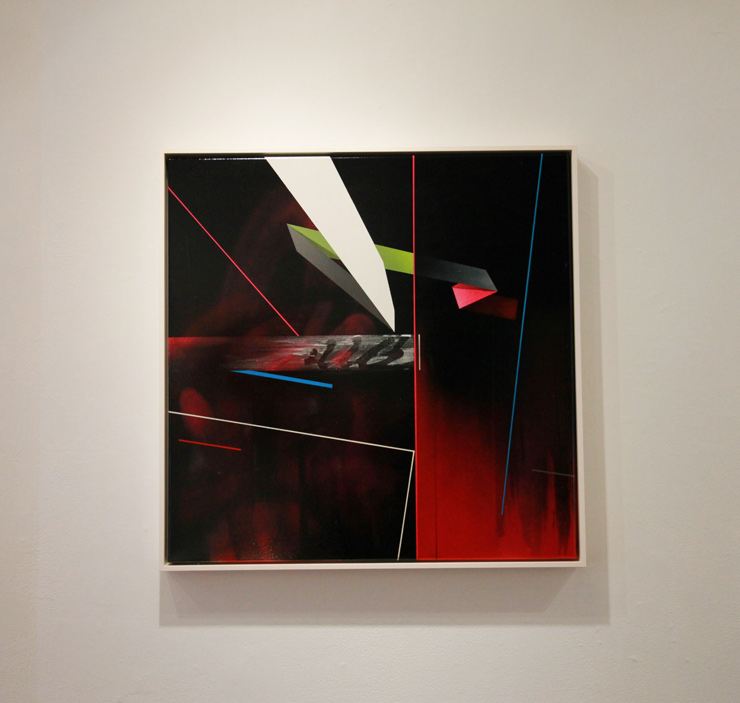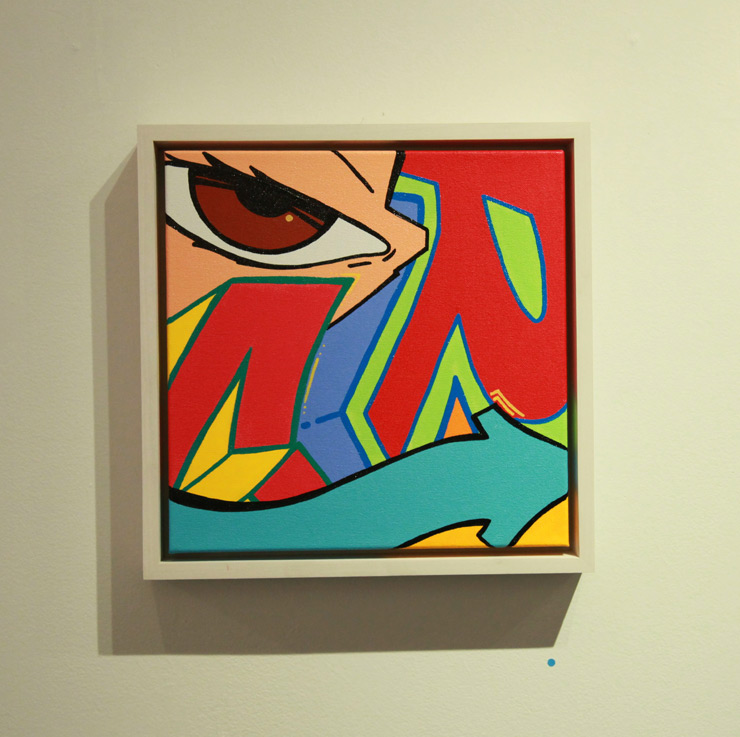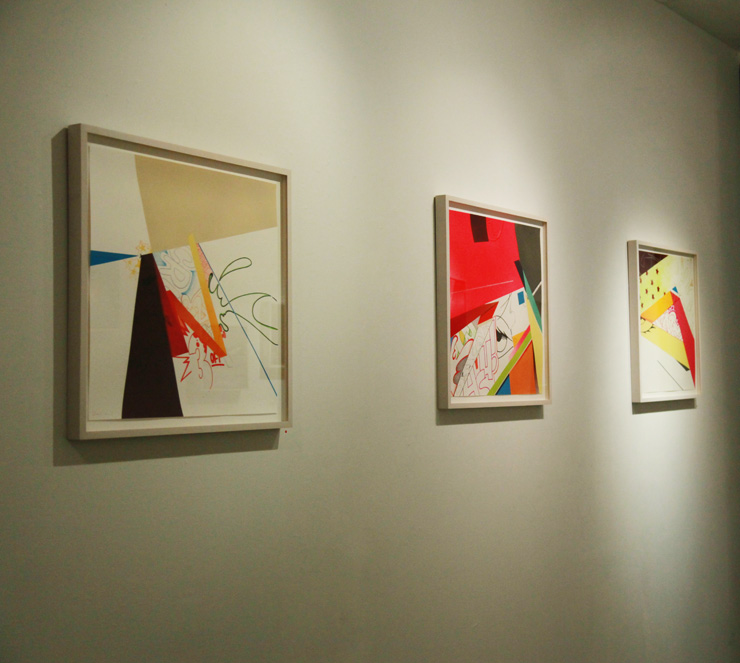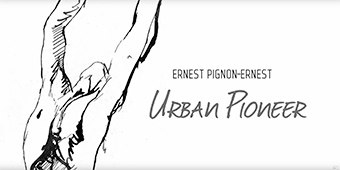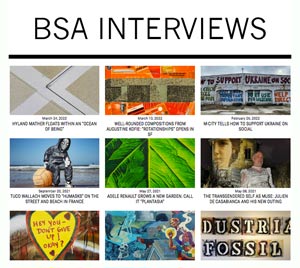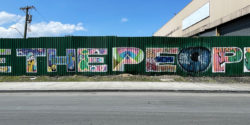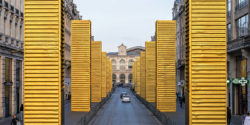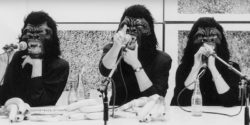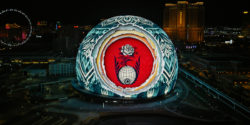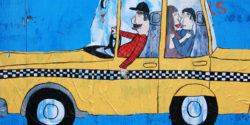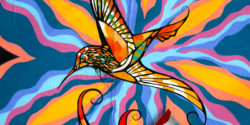Name Checking Rivera, Following Fairey
A new show of gallery work by Mexican street artists currently running in Manhattan’s Lower East Side questions the assumption that the nationalistic, social and political messages championed by that country’s famed muralism movement retain the impact and relevancy to artists a hundred years after the revolution.
To hear the story told by some, you may think that this is a generation following in the footsteps of the great syndicate of technical workers, painters, and sculptors who were funded by government programs in the 1920s, 30s, and 40s to promote a vast array of social and educational messages to a newly federalized citizenry. However people born in the last decades of that century comprise a much wider spectrum of individualists and self directed visual authors who are redefining narratives on streets in cities and their position as inheritors of that lineage may not have as much relevance to them as you thought.
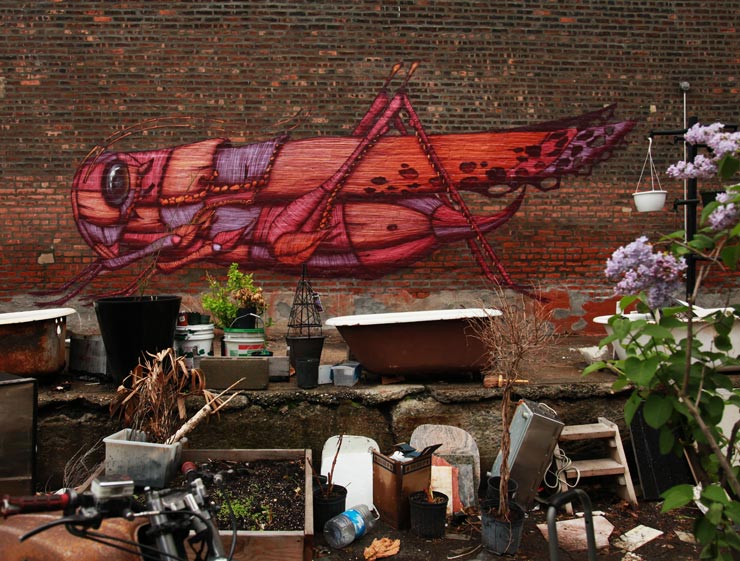
Sego (photo © Jaime Rojo)
“12 Mexican Street Artists” features a few of the names you recognize from that scene and leaves perhaps a couple of them out, but the scope is a sufficient sampling to give you an idea of the current moment of art on the streets. Included in the show are Saner, Bebo, Dhear, Fusca, Meca, Meiz, MilAmores, Minoz, Sego, Seher, Smithe and Undo. Photographer Christophe von Hohenberg, who organized the gallery show, draws your attention with portraits of this loosely connected group and there are a variety of works on paper by these street artists, graffiti artists, muralists, and public artists who come from a multiplicity of backgrounds and disciplines.
While some in the group refer to themselves as “La Linea” and they may honor the heritage associated with their countrymen Orozco, Rivera, and Siqueros, these world citizens are equally eager to differentiate themselves from those great muralists of the previous century. Walking along the collection of mostly small works you’ll see folk influences here, sure, and so are traditional and sociological consideration. But don’t forget the surreal, the pop, the modernist.
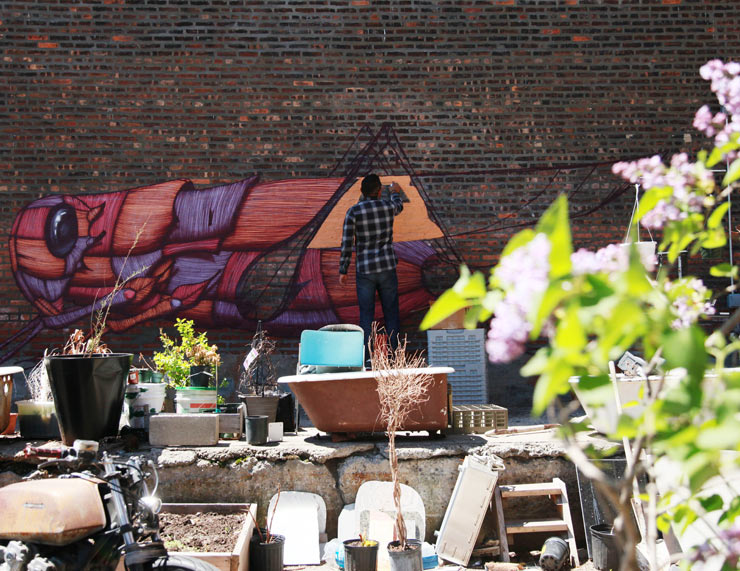
Sego in Brooklyn (photo © Jaime Rojo)
Never mind borders – we now are becoming accustomed to the staccato race across a boundary free digital fountain of inspiration. Seen through a Mexican filter, these are the same Internet fueled romances currently exploding on the Street Art scene globally; illustration, graphic design, cartoon, tattoo, skater culture, painting, stencil, the conceptual, even the sculptural.
Suffice to say this show of 12 Mexican muralists is an important inclusion in the story telling as the global street art explosion is re-defining how we look at public aesthetic discourse and public art making. A clear break has been made from the heralded lineage of Mexican muralism and this small show may be the first concentrated collection that demonstrates how far the new kids are wandering.
Speaking to a handful of them last week while they hit up walls in Manhattan and Brooklyn, we learned that these artists are as influenced by Fairey as they are Tamayo.
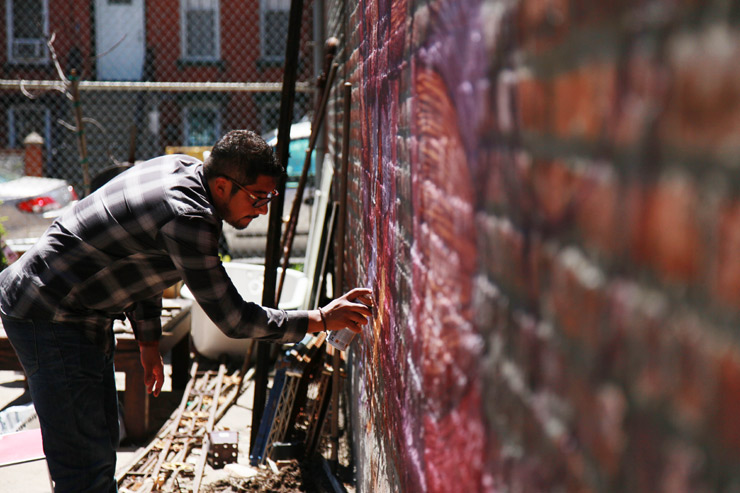
Sego’s first trip to New York. (photo © Jaime Rojo)
Mexico City’s Sego began transferring his illustrations of animals and insects from his notebook to the street about 10 years ago when hanging with graffiti-writers on the street. A designer who has worked with corporate brands, he says the symbiosis of the natural and the man-made world is something he wants to engender with his creatures whether he is in a moneyed neighborhood or a poor and dangerous one.
If you ask him about his connection to the famed Mexican mural tradition, he honors it and then emphatically distances the work of his generation from it. “I was very inspired by them but not influenced by them. I respect their work and we have to learn from their monumental production but we have to be conscious of the fact that we live now in a different time and we have to really propose new things for today’s realities,” he says.
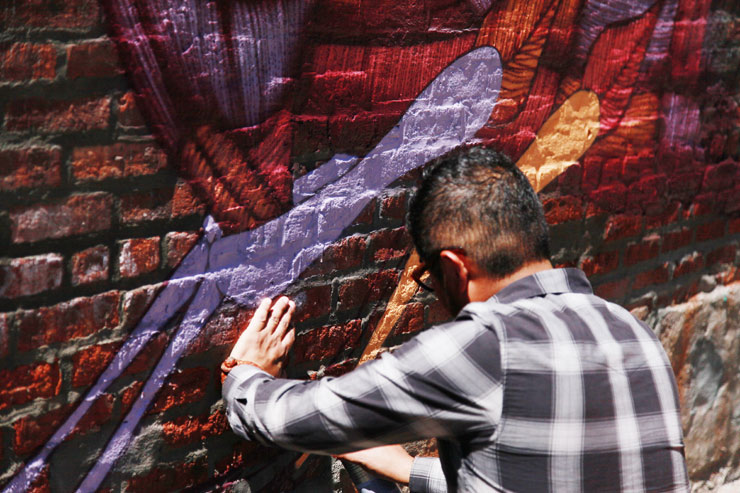
Sego (photo © Jaime Rojo)
“The irony is that those murals were often created in governmental buildings that the poor and indigenous people didn’t have access to. So in terms of how strong the connections are between the people and the art when comparing what they did and what we do today, I feel like our connections are much stronger,” he explains as he talks about the Street Art that goes into any neighborhood and usually on its own volition.
One last thing – “Those muralists had the government behind them and the financial support so they could have as many assistants as they needed. The merits of what we do also rests on the fact that it is mainly D.I.Y. and has more of an independent spirit since we have to self-finance our work.”
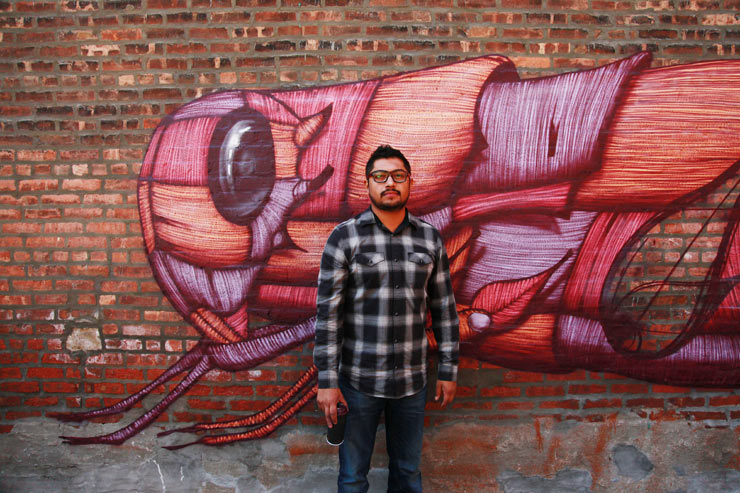
Sego (photo © Jaime Rojo)
Mexico Citys’ UNDO, who considers all his work to be an attempt to reverse deleterious political realities, and Tijuana based Bebo, a philosophy and fine art major who discovered modern street art when he was a student at university, both have distinctly different approaches to their work and to how they label it.
Undo: It’s different for everybody. There are some who don’t feel comfortable with the term “muralist”, you know?
Bebo: And some people who don’t feel comfortable with the word “graffiti” or “street art”, but we all do walls. Everybody paints walls and we love it.
Undo: That’s just the terminology.
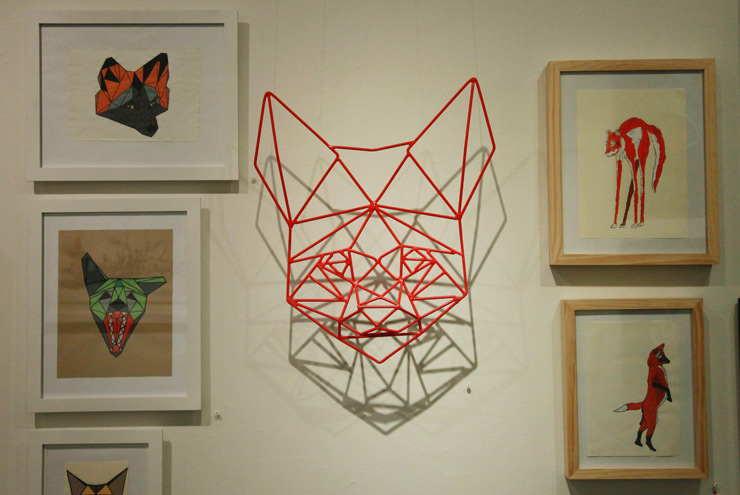
BEBO at Dorian Grey Gallery. (photo © Jaime Rojo)
Brooklyn Street Art: Yeah it is, but you know some people do care very much about how their work is described. Particularly because Mexico has this wonderful muralism tradition and it is something you can be very proud to be associated with, so I thought perhaps you would want to say you are muralists, who do not do graffiti.
Undo: It’s not the same for everybody. Some of them started directly as graffiti artists and then they went to murals.
Bebo: It’s the way you grow up. You develop a personality in what you do and how you do it. If you painted graffiti first, you always say you are a graffiti artist. They don’t necessarily make the connection with the muralists.

BEBO (photo © Jaime Rojo)
As UNDO describes a recent stencil piece that depicts the Mexican Presidents chair with bloody spikes for legs, he criticizes what he sees as a false appearance of democracy and the onerous burdens that are placed upon the everyday citizens. Now he is studying economics and technology and how our lives are being changed by the intersection of the two.
You may think that this is a rebel who is eager to vandalize, but his social conscience tells him just the opposite when it comes to illegal walls. “It is attractive to think about you know, because of the rush of the adrenaline but the idea of tagging – I like that others do that but I don’t feel comfortable to trespass on other people’s walls,” he explains. Right now he’s trying to lighten his themes with a little hope, so he has cut and sprayed a stencilled dove.
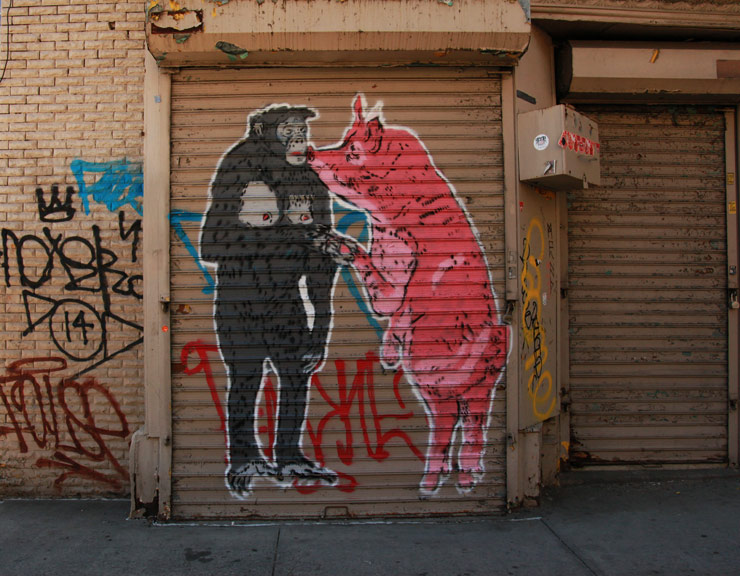
BEBO (photo © Jaime Rojo)
“One day Acamonchi came to visit us and also Shepard Fairey came to our school and I said, ‘Okay, this is very easy for me’, ” says Bebo about how he first began making stencils and wheatpastes and putting them out on the street.
Bebo: You have to make a language and that is the interesting part so when I put something in the street I can say “Ah, that’s mine”.
Brooklyn Street Art: Right, it has to have your signature… and what is your typical subject matter?
Bebo: Foxes. I do all kinds of foxes. It’s a visual thing. I began to use canines like foxes and wolves in my work because I feel like they are designed perfectly in nature. Their symmetry is perfect, like the triangle that is formed with their eyes and their snout.
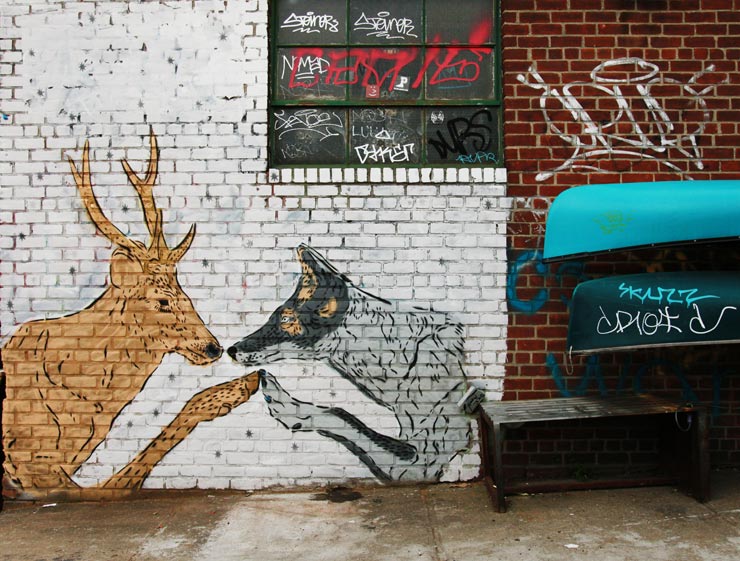
BEBO (photo © Jaime Rojo)
Bebo: When I began researching foxes and wolves I moved beyond the purely graphic concept and I found the foxes to be even more attractive. They have the capacity to be in the here and the now, and it is very impressive. For example if the fox stops to smell a flower, he lingers and inhales it and relishes it. If he lies down to have a nap in the sun he really enjoys sunbathing. They do what they need to do at the time that they need to do it.
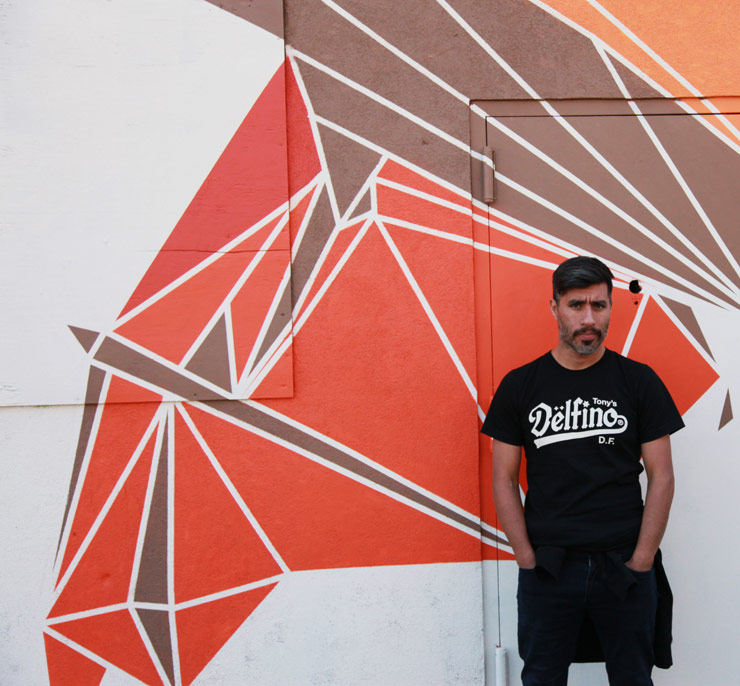
BEBO (photo © Jaime Rojo)
UNDO says Fairey also influenced him.
Undo: Yeah I definitely have to say that I was inspired by OBEY because I didn’t know how to do it and I saw it and I said, “oh I’m going to try to do it”
Did he also see the well known Fairey speaking at a public forum?
“No I saw him on the web,” he says.
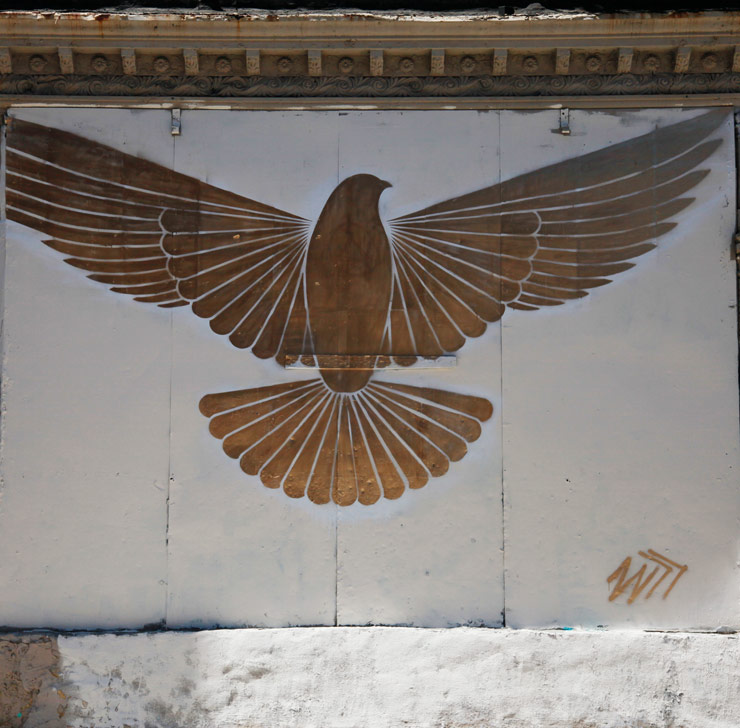
UNDO (photo © Jaime Rojo)
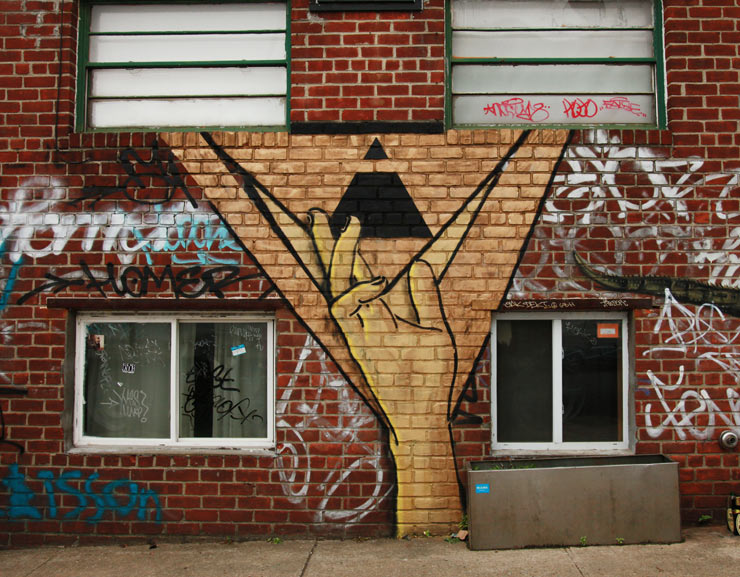
UNDO (photo © Jaime Rojo)
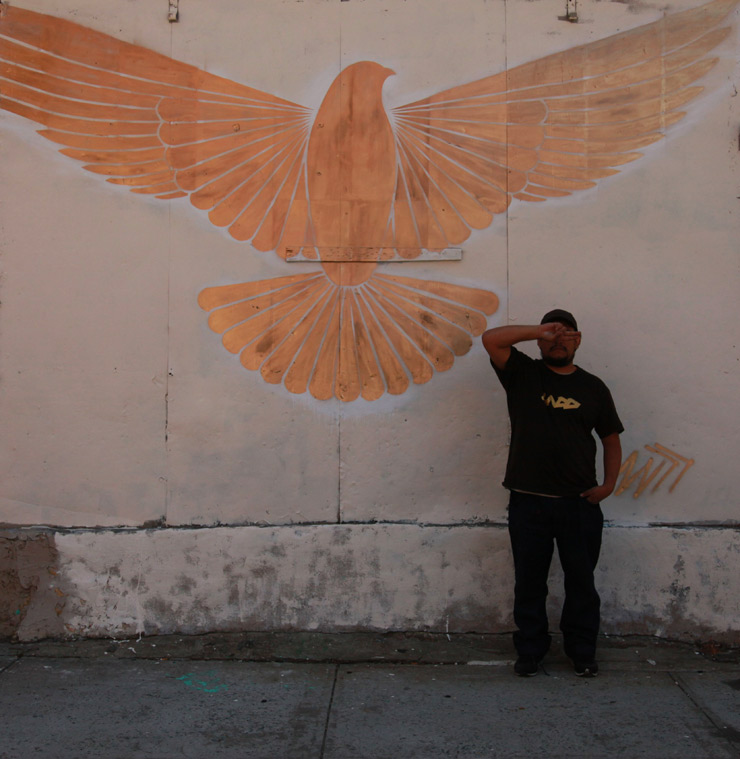
UNDO (photo © Jaime Rojo)
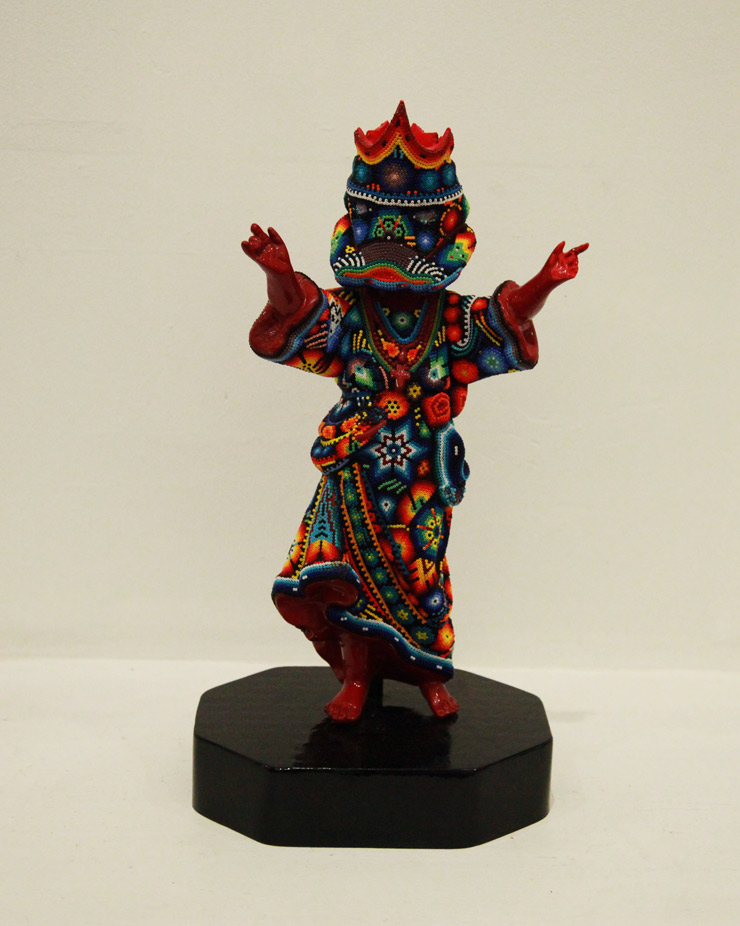
Mil Amores at Dorian Grey Gallery. (photo © Jaime Rojo)
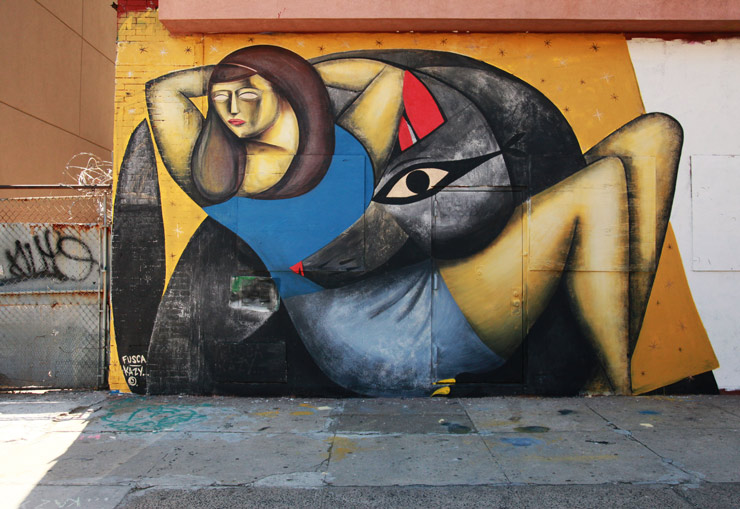
Fusca collab with Kazy (photo © Jaime Rojo)
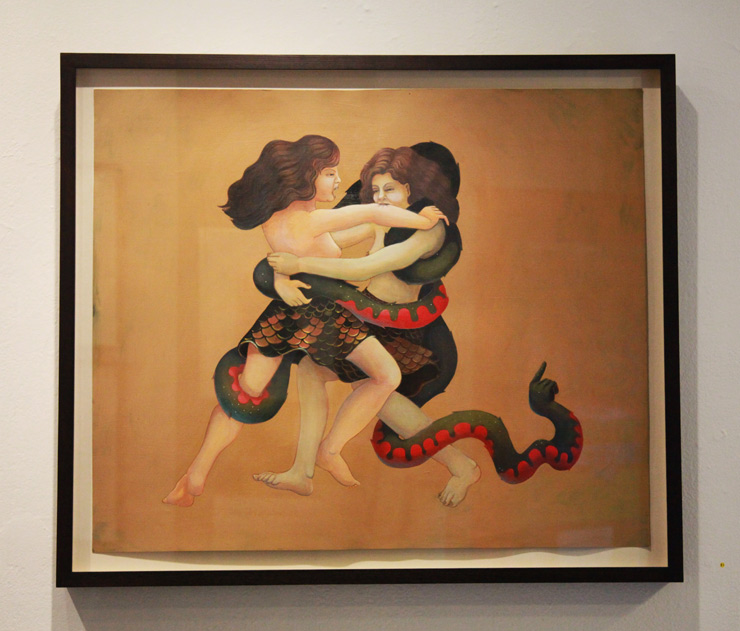
Fusca at Dorian Grey Gallery. (photo © Jaime Rojo)
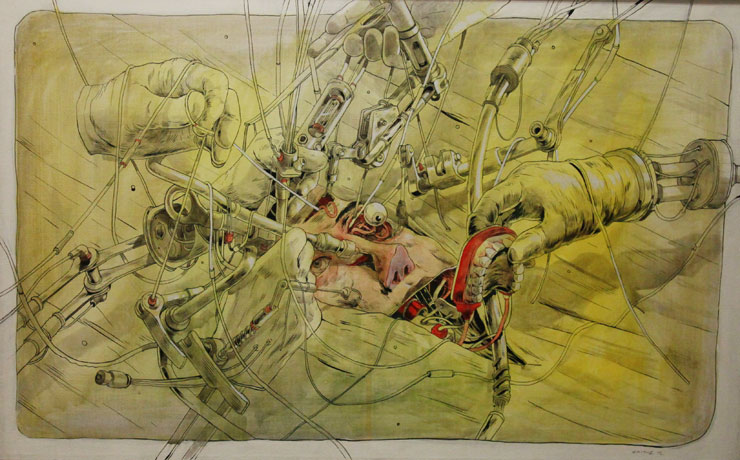
Smithe at Dorian Grey Gallery. (photo © Jaime Rojo)
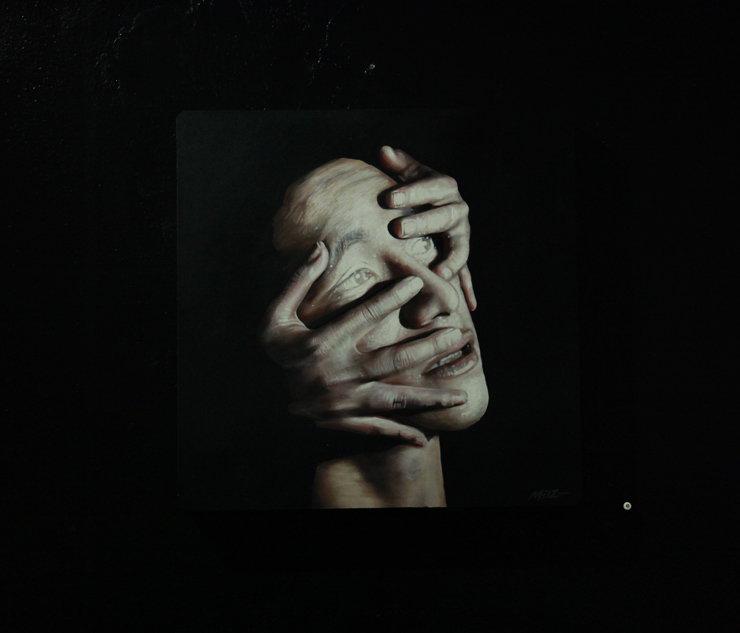
Meiz at Dorian Grey Gallery. (photo © Jaime Rojo)
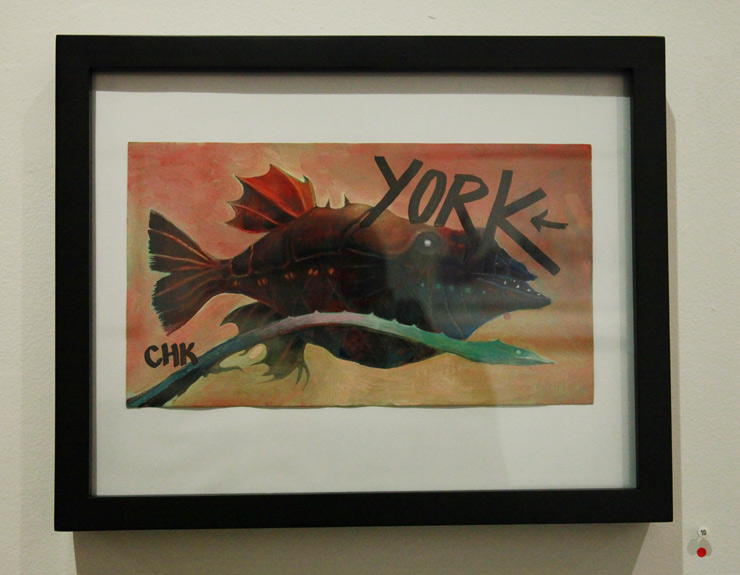
Dhear, York CHK at Dorian Grey Gallery. (photo © Jaime Rojo)
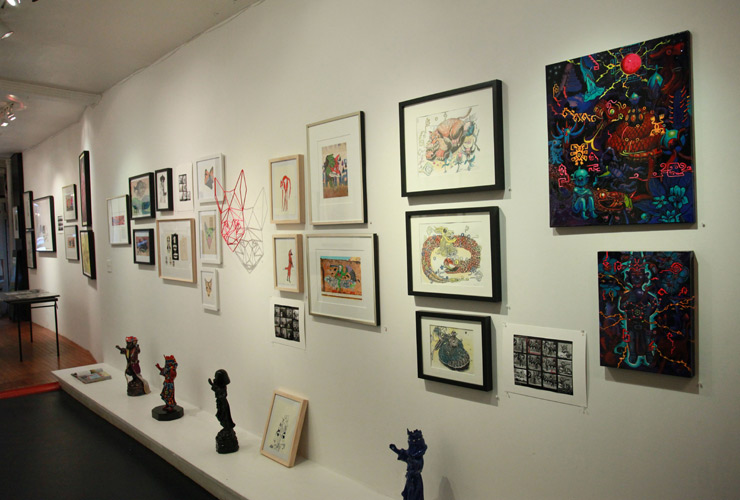
Dorian Grey Gallery (photo © Jaime Rojo)
12 Mexican Street Artists is currently on view at the Dorian Grey Gallery. Click HERE for more details.
<<>>><><<>BSA<<>>><<<>><><BSA<<>>><><<>BSA<<>>><<<>><><BSA
Please note: All content including images and text are © BrooklynStreetArt.com, unless otherwise noted. We like sharing BSA content for non-commercial purposes as long as you credit the photographer(s) and BSA, include a link to the original article URL and do not remove the photographer’s name from the .jpg file. Otherwise, please refrain from re-posting. Thanks!
<<>>><><<>BSA<<>>><<<>><><BSA<<>>><><<>BSA<<>>><<<>><><BSA
 BROOKLYN STREET ART LOVES YOU MORE EVERY DAY
BROOKLYN STREET ART LOVES YOU MORE EVERY DAY